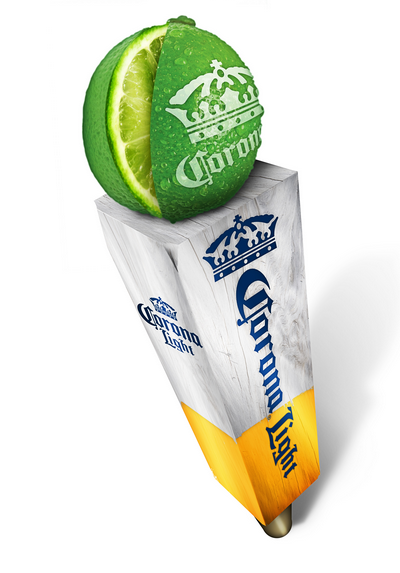
Following a successful test run in six cities during 2012 and 2013, Constellation Brands — which owns the Corona and Modelo brands, among others — said it plans to strengthen its presence at the tap with the expansion of Corona Light draft to 35 additional U.S. markets. At the same time, the company is also introducing Corona Extra — already the fifth best-selling beer in U.S. grocery stores — to draft accounts in three U.S. cities including Sacramento, Calif., Houston, Tex., and Cincinnati, Ohio.
“We’ve found that there is strong consumer demand for Corona Light Draft,” said Jim Sabia, the chief marketing officer at Crown Imports, the beer division of Constellation Brands. “Consumers have been asking for Corona Light to be available in draft format, and we’re thrilled to be able to provide it to them.”
In order to capture the coveted draft placements, Constellation is taking a page out of craft’s playbook by offering a lower alcohol beer at a premium price point.
“Although prices will vary from retailer to retailer, with Corona on draft accounts can charge import or craft level prices, increasing their bottom line while giving consumers a drinkable, sessionable beer,” said Sabia.
But that’s not all. In an effort to reach more craft-savvy consumers, Constellation is currently developing print and digital advertising that positions the Corona Light brand as a “light beer you can actually taste,” touting the beer’s 18 IBUs, said Sabia.
“The consumer today — with the increase in micro-breweries, craft beer and digital media — is more sophisticated,” he said. “Now they understand IBUs. If you mentioned that 10 years ago to a consumer, they might not have known.”
Nonetheless, Constellation will still have to battle a group of more than 2,700 craft brewers that collectively grew on-premise volumes by 4 percent in 2013, according to GuestSciences. During that same period, on-premise light beer volumes actually declined 10 percent.
So how will Constellation compete with craft? It plans to rely on the strong “brand recognition of Corona” that makes it “perfect for any bar,” said Sabia.
“Although the overall craft space is growing, we believe we have a strong selling story for both Corona Light and Corona Extra when it comes to draft,” he said. “In markets where we launched Corona Light on draft, we have seen the brand outperform, contributing to a brand trend that is 12 percent better than non-Corona Light draft markets.”
And despite the 10 percent declines for on-premise light volumes in 2013, Sabia still believes there is an opportunity to grab tap handles.

Tom Fox, a nationally recognized retail expert, believes that bar owners and restaurant operators will be attracted to the potential for higher sales velocity items in Corona Extra and Corona Light.
“It’s an opportunity for the operator to trade customers up, not necessarily from craft but from other light beers,” he said. “The premium low-calorie, on-premise business has not completely dried up.”
Still, Crown’s draft business is a relatively small piece of the pie. The entire portfolio — which also includes Modelo, Victoria and Pacifico brands — accounted for less than 2 percent of the company’s overall sales last year. Draft beer sales from other beer producers are typically about 10 percent of overall sales while some larger craft brewers can skew as high as 50 percent.
Nonetheless, small brewers should still feel pressured, said Fox.
“It is definitely going to be a threat to craft,” he said. “Any craft that has carved out a niche has had to tell their story very well and I imagine they’ll need to get even better at telling that story. The fact is that competition is always going to be innovating and there will always been new threats and craft brewers need to constantly get better at telling their story.”